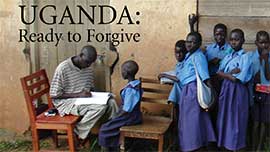KING MWANGA KILLED MUKASA FOR MAKING CHRISTIANS
UNDER KABAKA [KING] MUTEESA I, Christian missionaries gained a strong foothold in Buganda, a region of Uganda. Some officials at court converted to the new faith. The first Christians on the scene were Anglicans, soon followed by Roman Catholics. Muteesa wavered between the rival Christian teachings, Islam, and paganism according to whichever served his purposes or whims at the moment.
While Muteesa ruled, his son, Prince Mwanga, showed appreciation for Christian missionaries. After Muteesa died in 1884, the eighteen-year-old prince became Kabaka Mwanda II. Now advised by a pro-Islamic prime minister, Katikkiro Mukasa, his attitude toward Christianity became hostile. In part this was because European powers were carving up Africa between them and he rightly suspected missionaries of assisting their respective nations in the endeavor to colonize. He feared for Uganda’s territorial integrity. Partly it was because various factions in his territory were in revolt, so that he had inherited a civil war. He needed gunpowder that he bought from Arab traders, but they promoted Islam and vilified Christians.
His hostility toward Christianity also sprang from personal pique. When Christian pages declined to indulge his homosexual practices, he took it as an insult of his royal authority. In January 1885, he executed three of them and laid the blame for their insubordination at the feet of Joseph Mukasa Balikuddembe, a Catholic convert. Balikuddembe (often known as Mukasa) was steward of the king’s household. He had served at court with distinction under Muteesa, and Mwanga had granted him permission to reprove him (the king) if he felt he acted unwisely.
Mwanga’s hostility had caused the Catholic missionaries to withdraw to Lake Victoria. Balikuddembe filled in for the departed missionaries, encouraging Mwanga’s pages to live holy lives and catechizing new converts. He also urged Mwanga to put away his magical charms. When Mwanga ordered the death of a young woman who had converted to Christianity, Balikuddembe interceded for her and she was spared. He also pleaded with the king not to kill bishop Hannington who was on his way to Uganda through Kenya in 1885. Three years earlier Hannington had attempted to enter Uganda by the traditional southern route up Lake Victoria but had been forced to turn back because of malaria and dysentery. Apparently unaware that the Kenyan route was forbidden because of a prophecy that Uganda would be conquered from that direction, Hannington approached from the north. Unwisely, Hannington rejected Mwanga’s orders to turn back and Mwanga had him seized and speared.
After Balikuddembe rebuked the king for this action, Mwanga turned on him. He gave him an all-night tongue lashing but did not himself order his death. Instead he had his prime minister dispose of Balikuddembe. On this day, 15 November 1885, Katikkiro Mukasa had Balikuddembe beheaded and his body cast into a fire. Other Christians were also martyred around this time.
Driven from his throne, Mwanga claimed to have a change of heart. He begged Christians to help him regain power. Since the usurper was also harsh with Christians, and Mwanga’s appeals were persuasive, Christians helped return the king to his throne. However, Mwanga had not changed, and unleashed more persecution against believers. Altogether about forty-five perished during his reign—by spearing, burning, or decapitation, sometimes tortured and castrated first.
In 1964 Pope Paul VI canonized the twenty-two Catholic martyrs of Uganda.
—Dan Graves
----- ----- -----
Modern Uganda has violence, too, but Christians are Ready to Forgive. Watch it at RedeemTV
or watch two stories of missionaries to Uganda Maria Prean and The Carole Ward Story: Send Me Where No One Wants to Go
Uganda: Ready to forgive and Maria Prean can both be purchased from Vision Video.







